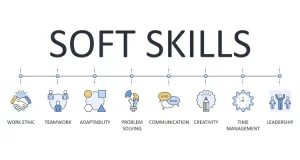Top 5 Tips for Finding Jobs in the UK as an International Student
Table of Contents
Job search looks very different from one country to another. It gets trickier when you are an international student since you have multiple considerations: visa sponsorship, eligibility to work, cultural adaptation…you get the drift.
If you are an international student in the UK, you should approach the job search process very strategically and methodically. What does that mean? It means that you should first understand the job market, prepare for the various stages of the application process and use the tools and resources available to you, rather than shooting in the dark.
Where can you find jobs?

First and foremost, understand the UK Job market. The quirks of the labour market often define how difficult or easy it is to get a job. The job market looks very different from one country to another, so the first thing on your to-do list should be understanding the trends and trending jobs and in-demand skills.
As an international student, you have to be extremely selective in the jobs and organisations you apply to. For starters, not all jobs or employers sponsor your work visa. You can either work on the Graduate Route visa or the Skilled Worker visa, but the former does not require you to be sponsored by your employer. In order to find vetted, visa-sponsored opportunities, you can browse the jobs board at Student Circus.
Learn about the hiring process

As an extension of understanding the labour market, you should spend time understanding the hiring processes followed by employers in the UK. You should start by understanding the difference between graduate schemes, graduate roles, and other full-time roles. In addition, you can also apply speculatively to organisations you might want to work with. But as far as graduate schemes are concerned, they follow a structured hiring process comprising of online psychometric or aptitude tests, followed by a video interview, assessment centres and HR interviews.
When you find yourself in the middle of the application process, make use of all the resources available to you. In the UK, most universities have a careers department, often referred to as the careers services. Their services are usually available for the students at the institution. They can answer all career-related queries and doubts you might have, or signpost you to resources or tools that can help you. You can visit them for CV reviews, mock interviews, online applications, or attend employer events conducted by them.
When is the right time to apply?

This is one of the most burning questions asked by international students since they are on a time crunch when it comes to application cycles and visa expiry. Our answer is: as soon as possible.
If you are planning to apply for a graduate scheme, most schemes open in September and October of the previous year. You will find that the opportunities keep getting fewer and fewer as months go by. That’s because most grad schemes accept applications on a rolling basis and that means that application windows close as soon as all the vacancies are filled up.
Soft Skills are a priority

Which skills are employers looking for? Employers in the UK value your soft skills a lot. While hard skills and professional qualifications can help you get a foot in the door, it is eventually your soft skills that will set you apart from other candidates in the hiring process as well as at your job.
Soft skills are interpersonal skills like communication, creative problem-solving, teamwork, adaptability, time management, and so on. Unlike technical skills or hard skills, soft skills are harder to learn and measure. But they can be game-changing in helping elevate your profile.
Networking as a job search tool

Networking is the most valuable and underrated skill you can develop as a professional. As an international student, you can start networking at events like career fairs. Virtually, too, you should connect with people in the industry over LinkedIn, engage with their content, and find creative ways of staying in touch.
Many international students land job opportunities because of their network. Networking does not offer a linear path to jobs. For example, you cannot just walk over to someone and ask them for a job. But you can nurture professional relationships with people so that when an opportunity does arise, they will bring that to your notice and/or vouch for you.
Make sure you are ahead of the curve by learning about the local job market and adapting your actions to it.
Just as international students need support in booking accommodations and flights before arriving to the UK, they need proactive career support and accurate information before they can dive into the job market. In partnership with Student Circus, University Living aims to provide holistic support to international students coming to the UK. We know you have a fire in your belly and thousands of questions…let’s make your dream of thriving in the UK a reality!






